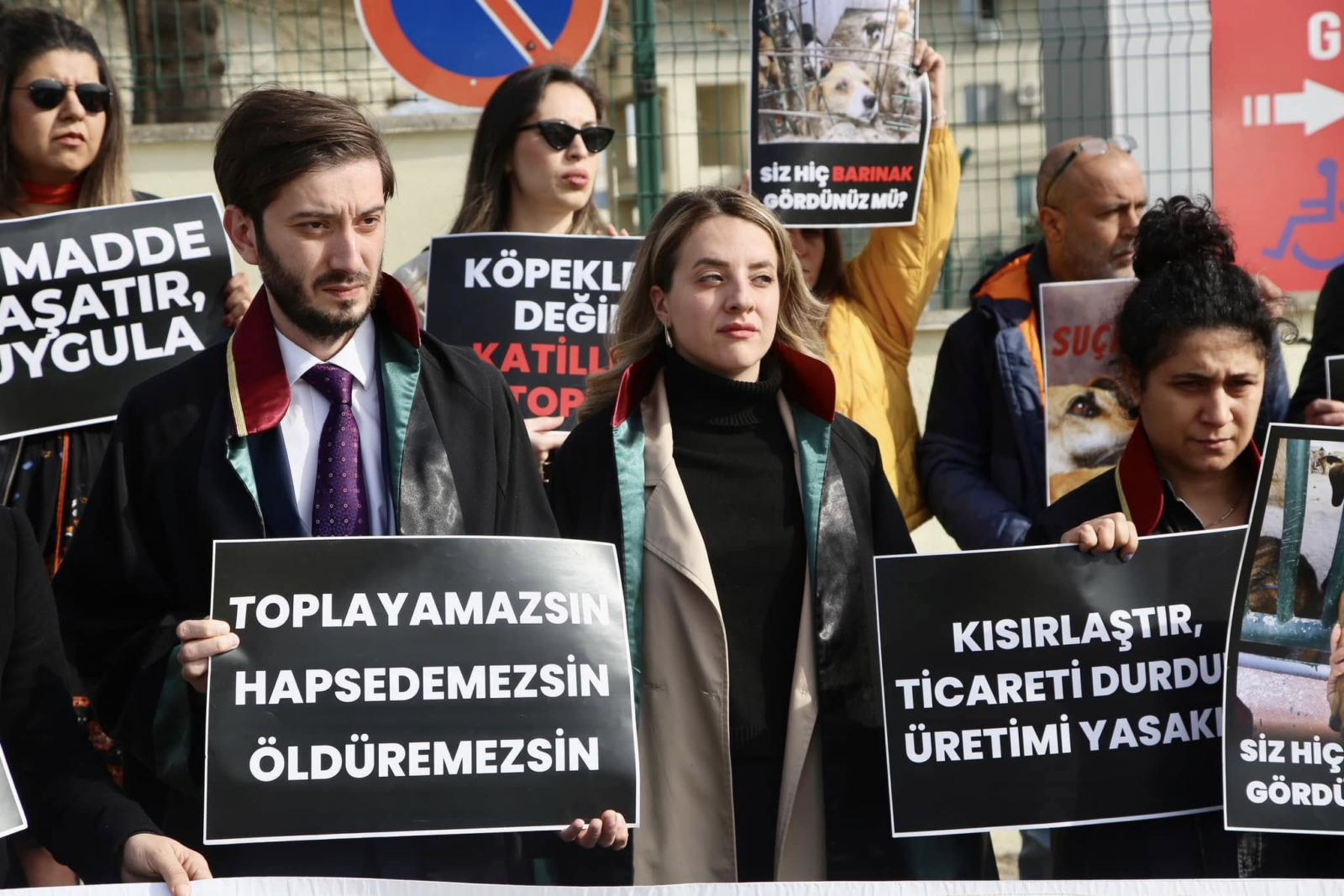
On Wednesday, Türkiye's Constitutional Court rejected appeals to overturn the contentious Animal Protection Law No. 7527, which came into effect on Aug. 2, 2024. The law, which allows for the euthanasia of stray dogs under certain circumstances, has been a subject of intense debate across Turkish society.
The debate has increasingly taken on socioeconomic and political dimensions. Some observers note that it is partially a matter of class, as affluent neighborhoods typically have fewer stray dog problems while lower-income areas bear the brunt of the crisis.
Others frame it as a left-wing versus right-wing issue, with conservative parties generally supporting stricter control measures and progressive parties advocating for animal rights. This political framing was evident in the parliamentary vote, where the law passed with support from the ruling Justice and Development Party (AK Party) and its nationalist partner Nationalist Movement Party (MHP), while opposition parties, including the Republican People’s Party (CHP), strongly objected.
The Constitutional Court's General Assembly deliberated on the petition requesting the suspension and nullification of several provisions of the new animal protection law. The Court ultimately rejected the appeal, with some provisions unanimously dismissed while others were rejected by majority vote.
The CHP filed the petition on Aug. 15, requesting the nullification of 16 out of the 17 articles in the law, citing violations of animal rights, public interest, and the right to life.
The court's detailed reasoning for its decision has not yet been released.

The legal battle comes amid increasing concerns about Türkiye's growing stray dog population, estimated at around 700,000 in major cities like Istanbul, Ankara, and Izmir. The issue gained national attention following several tragic incidents, including the fatal mauling of a 2-year-old girl in Konya this year.
In response to the tragedy, President Recep Tayyip Erdogan convened his cabinet and later declared, "Such brutality is unacceptable in Türkiye of 2025," signaling the government's determination to address the issue.
Other incidents have further fueled public concern. In Erzurum and Adana, an elderly woman collecting onions was fatally attacked by stray dogs. In the city of Mus, Varto, a senior citizen survived with severe wounds after being bitten multiple times. Children have been particularly vulnerable, with many reporting fear of going outside due to aggressive stray dogs in their neighborhoods.
The Animal Protection Law No. 7527, backed by the AK Party and the MHP, grants municipalities the authority to collect stray dogs and place them in shelters. The law also permits the euthanasia of dangerous breeds and animals deemed incurable.
During parliamentary discussions, the term "euthanasia" was removed from the text, and cats were excluded from the scope of the law. However, critics argue that despite these modifications, the legislation still effectively allows for the killing of stray dogs under the provisions of the Veterinary Services Law.
One of the most debated aspects was Article 5, which opponents claim paves the way for the mass euthanasia of stray dogs. While the original term "euthanasia" was removed from the text, the provision still allows for the termination of dogs according to veterinary service regulations.
The law has faced significant resistance from animal rights advocates, various nongovernmental organizations (NGOs), and sections of the public who refer to it as the "massacre law." On the day of the Constitutional Court's hearing, protesters gathered outside the court building from early morning, joined by some parliamentarians who came to "defend the right to life."
The Ankara Bar Association had submitted an opinion to the Constitutional Court stating that the law violated European Court of Human Rights decisions, the World Organization for Animal Health Standards, the U.N. Environmental Program, and international conventions on animal rights.
In their submission, the Bar Association claimed that since its implementation on Aug. 2, 2024, the law had already caused irreparable harm contrary to public interest: "Hundreds of animals have died due to this law, which does not serve the public interest, though we cannot determine the exact number."

A recent survey by Metropoll reflects divided public opinion on the issue, with 78.6% believing stray dogs should be placed in shelters rather than allowed to roam urban areas, while 16.9% support the current situation with dogs remaining on the streets.
The problem is exacerbated by unregulated feeding practices and rapid reproduction rates. A single female dog can give birth to up to 12 puppies in one litter, and without effective sterilization programs, the population continues to grow exponentially. Experts warn that without permanent solutions, the stray dog population could reach millions in the coming years.
Animal welfare organizations are advocating for mass sterilization campaigns and improved shelter facilities as humane alternatives to euthanasia. However, scientific studies, including one published in the Journal of Forensic Science, indicate that stray dogs can sometimes attack without provocation.
The New Welfare Party, which drew votes away from the president's coalition in both general and local elections, had previously raised the stray dog issue with significant urgency and had championed its advocacy on the matter. Following their stance, the government clarified its own position more definitively.
The geographic distribution of incidents, where it appears that the victims of stray dog attacks are often from working-class conservative neighborhoods, became a decisive factor in shaping party positions on the issue.
Another factor shaping this polarized debate has been the high levels of support for the opposition CHP in Türkiye’s elite provinces, where municipalities allocate substantial resources to care for local dogs. These areas often feature well-maintained public spaces with healthy, vaccinated strays that receive regular care from municipal services.
The stark contrast between these environments and underserved neighborhoods with groups of aggressive stray dog populations has contributed to the increasingly binary political positions.
Following today's Constitutional Court decision, the immediate objections from opposition parties have further solidified these ideological stances, cementing the issue as a clear political dividing line in Turkish society.
However, it would be a mistake to reduce these differing perspectives to a simple political binary. While Turkish culture has traditionally shown deep affection for dogs, profound differences remain about the most humane and effective solutions to this growing public challenge.